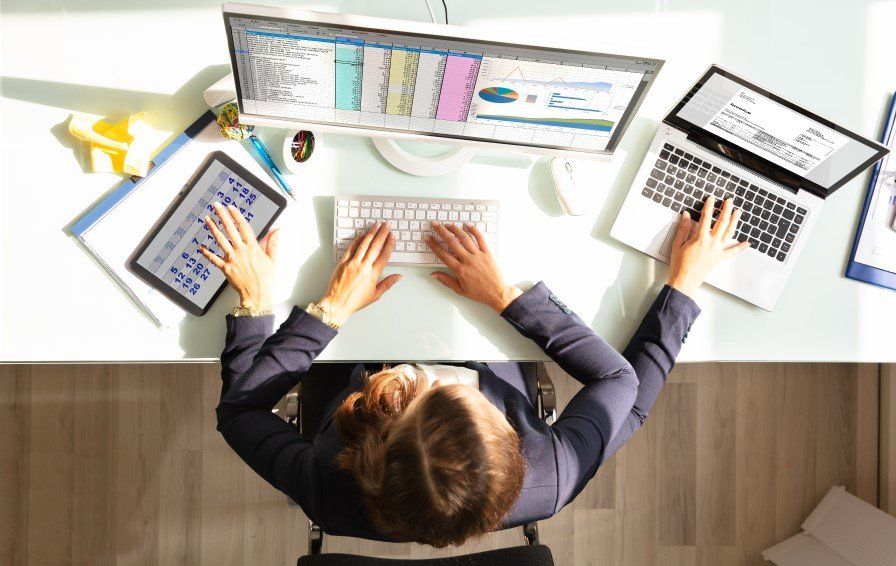Claiming working from home expenses from 1 July 2022

The ATO has updated the way you claim deductions for your home running expenses when you work from home from 1 July 2022. For the ATO's PDF guide see here. There are now two methods to claim your working from home expenses:
- The recently revised fixed rate method, or
- The actual expense method.
67 cents per hour short-cut fixed rate method
From 1 July 2022, a rate of 67 cents per hour applies to energy expenses (electricity and gas), internet expenses, mobile and home phone expenses, and stationery and computer consumables. You can separately claim other costs, such as depreciation on computers or other running costs not referred to above.
What proof does the ATO need that I am working from home?
To use the fixed rate method, you will need a record of all of the hours you worked from home using a spreadsheet such as the one that you can download HERE. The ATO has warned that it will no longer accept estimates or a sample diary over a four week period. For example, if you normally work from home on Mondays but one day you have an in-person meeting outside of your home, your diary should show that you did not work from home for at least a portion of that day. Having said that, the ATO will allow taxpayers to keep a record representative of the total number of hours worked from home during the period from 1 July 2022 to 28 February 2023. If you work from home outside of normal office hours, make sure your diary notes the hours that you worked.
You also need to keep a copy of at least one document for each running cost you have incurred during the year which is covered by the fixed rate method. This could include invoices, bills or credit card statements. For example, if you use your phone and electricity when you work from home, keep one bill for each of these expenses. Where bills are in the name of one member of a household but the cost is shared, each member of the household who contributes to the payment of that expense will be taken to have incurred it. For example, a husband and wife, or flatmates where they jointly contribute to costs.
Actual method
As the name suggests, you can claim the actual additional expenses you incur when you work from home (and reduce the claim by any personal use and use by other family members). However, you will need to ensure you have kept records of these expenses and the extent to which the expenses relate to your work.
Using this method, you can claim the work-related portion of:
- The decline in value of depreciating assets – for example, home office furniture (desk, chair) and furnishings, phones and computers, laptops or similar devices.
- Electricity and gas (energy expenses) for heating, cooling and lighting.
- Home and mobile phone, data and internet expenses.
- Stationery and computer consumables, such as printer ink and paper.
- Cleaning your dedicated home office.
Be careful with this method because the ATO is looking closely to ensure these expenses are directly related to how you earn your income. For example, you can’t claim personal expenses such as coffee, tea and toilet paper even if you do use these items when you are at work. Nor can you claim occupancy expenses such as rent, mortgage interest, property insurance, and land taxes and rates unless your home is a place of business. It is unusual for an employee’s home to be classified as a place of business.
Need Help?
Talk to us if you want assistance with working out the best method to claim your working from home expenses.
Please note that many of the comments in this publication are general in nature and anyone intending to apply the information to practical circumstances should seek professional advice to independently verify their interpretation and the information’s applicability to their particular circumstances. Should you have any further questions, please email us at RGA Business and Tax Accountants at reception@rgaaccounting.com.au . All rights reserved. Brought to you by RGA Business and Tax Accountants. Liability Limited by a scheme approved under Professional Standards Legislation









